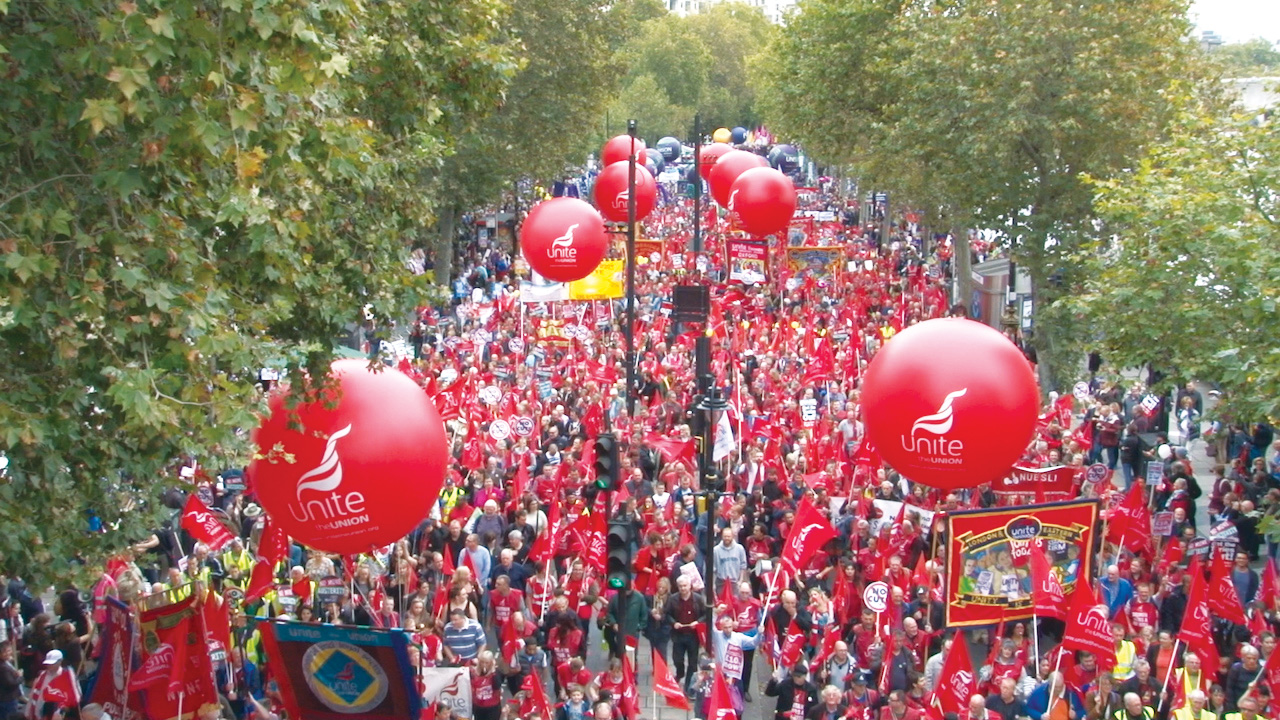Editorial from the Socialist 854
After the election: prepare for the battles to come
While no one yet knows which political party or parties will be in government after the general election, many of the tasks facing the trade union and anti-cuts movement after polling day are already clear.
With both Labour and the Tories promising further devastating public sector cuts, the need to build a massive, united, anti-austerity movement will be even more pressing. However, like during the last few years, the leaders of the TUC are not preparing to map out a determined anti-austerity agenda after the election – far from it.
If Tory leader Cameron manages to form the next government, many of those union leaders – lacking confidence in struggle – will be pessimistic about challenging it; full of foreboding and gloom. But such a government would in reality be extremely weak, resting on the votes of only around a third of people who cross their ballot paper. This would amount to not much more than a fifth of the total electorate if the turnout is similar to the 65% of the 2010 general election.
Labour government
On the other hand, if the new government is led by Labour, in all likelihood with a similarly weak base, those same union leaders will be disseminating false hope and urging a ‘wait and see’ approach on their members who are desperate for measures to improve living standards.
However, as the Socialist has long said, while some of Labour’s limited pledges will be welcomed – such as temporarily freezing energy prices, scrapping the bedroom tax, extending free childcare and capping rent increases within three-year contracts – they will be merely tinkering at the edges of the problems working class and middle class people currently face.
A certain period of ‘wait and see’ by workers would be understandable. It would also be complicated if Labour attempts to rule as a minority government or in an unstable coalition, because Miliband and Balls could then try to blame some of the other parties for its failure to deliver any substantial pro-working class measures.
But workers presently unable to hold back from fighting job losses, privatisation or low pay, like striking council workers in Bromley, Barnet and Glasgow, would very quickly be asking what the new Labour-led government will do to help them and whether continued action will be necessary.
And it would only be a question of time before other council workers, firefighters demanding the safeguarding of their pensions, low paid workers needing a £10 an hour minimum, young people with no affordable housing, NHS workers in need of a substantial pay rise, and so on, would have to enter into struggle to try to drag pro-big business Labour kicking and screaming into making some concessions.
After the election
Post-election, the Trade Unionist and Socialist Coalition will continue to build its profile as the only effective, pro-working class political alternative to the parties representing big business. But at the same time, coming back to the fore will be the urgent need to develop trade union, student and community based struggles to defeat austerity.
Whether the election outcome is a Labour or Tory led government, either way preparation for mass struggles will be crucial. This is particularly so when bearing in mind the malaise and likely shocks to come across the Eurozone and world economies, which will be used by the next government to justify more austerity.
There are a number of national trade union conferences taking place in the weeks after election day during which Socialist Party members will argue – in fringe meetings and on conference floors – for a coordinated counter-attack against the latest assaults on trade union rights – in particular those recently hitting the PCS.
We will also be calling for serious preparation to build anti-austerity action. The 9th annual conference of the National Shop Stewards Network (NSSN) on Saturday 4th July will be an essential event in the diaries of workers and anti-cuts activists who want to help coordinate struggles and campaigns and discuss how concrete steps can be taken at grassroots level to build mass, effective action.
A vital part of this will be discussion among rank and file trade unionists together with union leaders who stand firmly on the left, on how the unions can advance as leading, fighting vehicles of struggle capable of attracting hundreds of thousands of new members and followers. Whatever shade of austerity is adopted by the new government, these issues will be essential.









